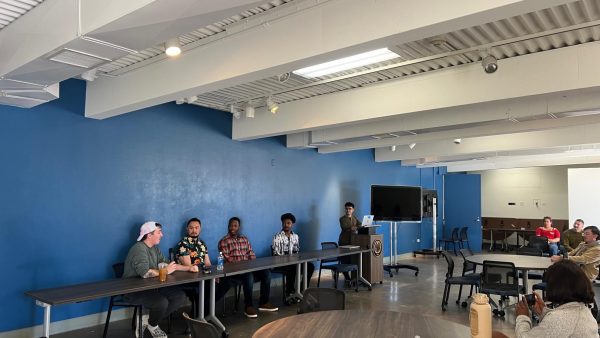Prior to 2011, openly LGBTQ individuals were prohibited from serving in the U.S. military. Recently, a panel of four LGBTQ-identified veterans convened at Mesa College in San Diego to share their personal stories and experiences.
The “Don’t Ask, Don’t Tell” (DADT) policy, implemented by the Clinton administration in 1993, marked a significant yet controversial shift in U.S. military policy. Designed as a compromise, DADT allowed LGBTQ individuals to serve in the military if they did not openly disclose their sexual orientation. Despite its intention to reduce discrimination, the policy led to the discharge of over 13,000 service members who were found to be LGBTQ, stripping them of VA benefits and job opportunities, and often impacting their mental health.
The policy was repealed in 2011 by the Obama administration, allowing LGBTQ individuals to serve openly. However, the legacy of DADT continues to affect many veterans who served under its restrictions, highlighting the ongoing struggle for full acceptance and equality within the military.

Marine Corps veteran Donald Hua shared, “I suffered from depression, especially being closeted throughout that time,” highlighting the profound impact on his mental health. He spoke candidly about the challenges he faced, emphasizing how not being able to be himself took a significant toll on his well-being.
In 2011, despite repealing the policy, the stigma remained. One veteran says he initially felt a sense of relief, thinking he could finally be free, but he soon realized that adjusting to being completely himself was not an immediate process. Even at 35 years old, he was still adapting to his newfound freedom.
Six years later, former President Donald Trump implemented a ban on transgender individuals enlisting in the military. Navy veteran Jordan Taylor expressed his feelings of hopelessness and shame, stating that it was the first time he felt truly ashamed to be part of the United States military.
All four panel members shared vulnerable and honest stories, highlighting the challenges they faced in the military. They spoke about the internal battle between their true selves and the expectations of the military, encouraging others to embrace their authentic identities. Their stories shed light on the difficulties of serving while concealing their identities and the importance of being true to oneself.
Efforts are ongoing to secure benefits for military service members who were discharged under discriminatory policies. These policies, which barred openly LGBTQ individuals from serving in the military, have left many veterans without access to VA benefits and job opportunities. Despite the repeal of “Don’t Ask, Don’t Tell” in 2011 and the subsequent lifting of the transgender military ban in 2021, the struggle for full acceptance and equality within the military persists.
Advocates are pushing for legislative changes and legal actions to restore benefits to those who were unjustly discharged. The journey toward justice and recognition for these veterans is far from over, as they continue to fight for the rights and benefits service members deserve.
Veterans seeking assistance with benefits have several resources available to them. The main VA information line, MyVA411, can be reached 24/7 at 800-698-2411. For VA health benefits, veterans can call 877-222-8387, Monday through Friday, from 5 a.m. to 5 p.m. PT. The VA benefits hotline is available at 800-827-1000, Monday through Friday, from 5 a.m. to 6 p.m. PT.
If you or a veteran you know is in crisis, you can reach out to the Veterans Crisis Line for confidential support. The Veterans Crisis Line is available 24/7 and can be reached by calling 988 and pressing 1, or texting 838255.
This service is free and available to all veterans, even if they are not enrolled in VA benefits or health care.
Additionally, veterans can visit the official VA website. For comprehensive information and resources on benefits, health care and more.

